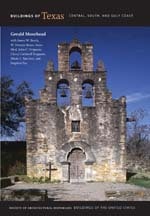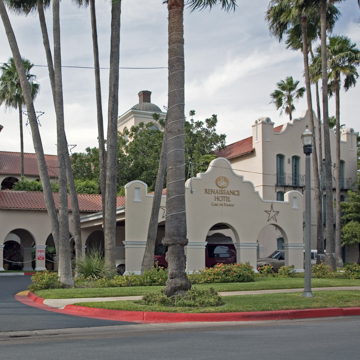You are here
Renaissance Hotel (Casa de Palmas Hotel)
The hotel expresses McAllen's early aspirations to differentiate itself from its neighbors. Designed by Waller, a Fort Worth architect turned Valley resident, the hotel was developed by a local partnership, with Waller as participant, after national hotel chains re fused to build in what was then considered a desert. Its height and location opposite a park gave the original H-plan hotel of stuccoed construction, with curvilinear gabled wings and colonnaded palm-lined courtyard, a commanding presence, especially when its domed twin towers were lit at night.
The venue for social and business events, the Casa de Palmas required an addition in 1939 along its south elevation due to its success. Waters, a prolific revivalist of the Spanish style in the Valley, planned his design to blend with the original building. After a post– World War II decline due to competition from a new line of motor inns, a rehabilitation in 1974 built large additions to the hotel's north and west sides. Still retaining the core of its 1918 construction, the Casa de Palmas continues to be a vibrant local landmark.
Writing Credits
If SAH Archipedia has been useful to you, please consider supporting it.
SAH Archipedia tells the story of the United States through its buildings, landscapes, and cities. This freely available resource empowers the public with authoritative knowledge that deepens their understanding and appreciation of the built environment. But the Society of Architectural Historians, which created SAH Archipedia with University of Virginia Press, needs your support to maintain the high-caliber research, writing, photography, cartography, editing, design, and programming that make SAH Archipedia a trusted online resource available to all who value the history of place, heritage tourism, and learning.















